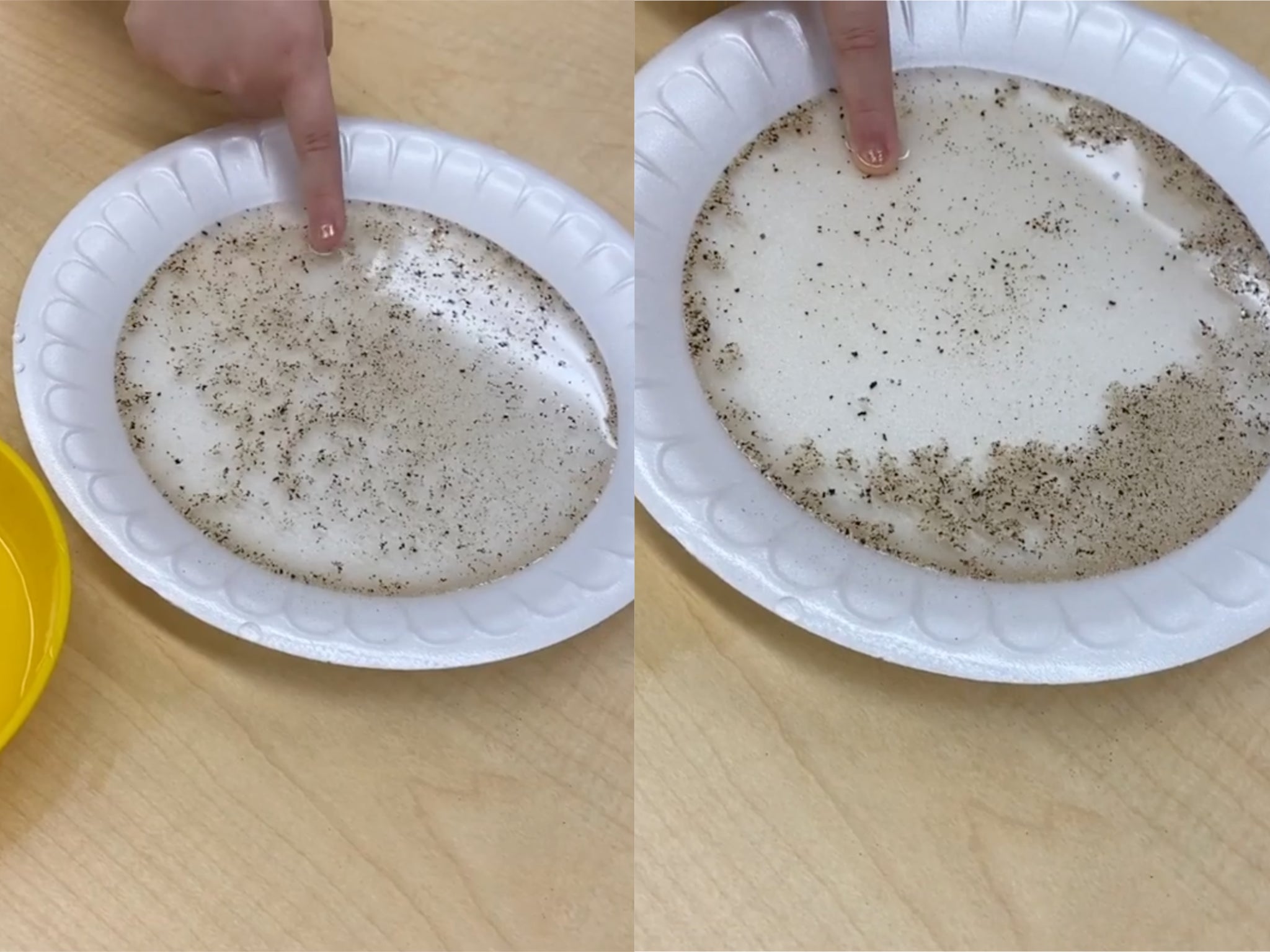
The Importance of Washing Your Hands
The message of this activity is to show how important basic hygiene is in washing your hands. By having this visual experiment take place shows how humans can help prevent the spread of any diseases, specifically coronavirus in today’s time.
Materials Needed:
- 2 bowls
- Water
- Pepper
- Soap
Steps:
- First, take one of the bowls and fill with water, enough to dip a finger in and in the other bowl fill it with any liquid soap found in the house, again with an amount enough to dip a finger in.
- Second, with the bowl filled with water, shake a generous amount of pepper into the water as this represents germs.
- Third, dip a finger into the pepper-filled water and observe how the “germs” stick to the fingers.
- Fourth, taking the opposite hand, dip a finger into the soap and proceed to dip the finger in pepper water. Observe how the “germs” repelled away from the finger with soap. A “safe zone” is created around the finger due to surface tension created in the water.
Washing your hands with soap and water is very powerful as it does two important things. The first is physically removing things from your hands. At the same time on certain agents, the soap is busting open the agent, breaking it apart. The agent in this case would be Coronavirus that is covered in a lipid envelope (aka a layer of fat) that soap is powerful enough to break the lipid apart and prevent the virus from infecting you. The second thing is that by using soap it makes the skin slippery with enough rubbing to pry off other germs and rinse them away.
Hand washing tips
Make sure to wash your hands through the day regularly, but take extra measures during this outbreak with situations like the following below:
a.) After returning from a public outing (grocery store, work, school, hospital, nursing home, etc.)
b.) Before leaving the restroom (at home and in public)
c.) Shaking hands with someone during flu season and virus outbreaks
d.) Before, during, and after preparing foods, especially raw foods
e.) Before eating food
f.) Before and after treating a cut or wound
g.) After changing the diapers or a child who had used the toilet
h.) After blowing, coughing, or sneezing
i.) After touching an animal, animal food/treats, or animal waste.
j.) After touching the garbage
k.) After putting on your shoes
l.) After using public computers, tables, countertops, cash, coins, people’s phones, etc.
Comments
Post a Comment